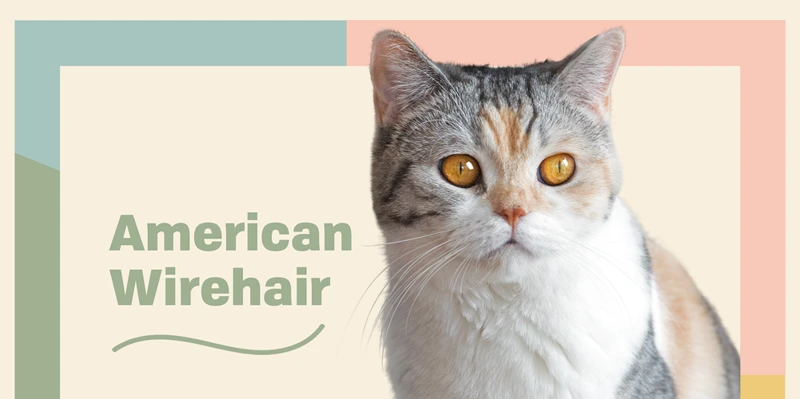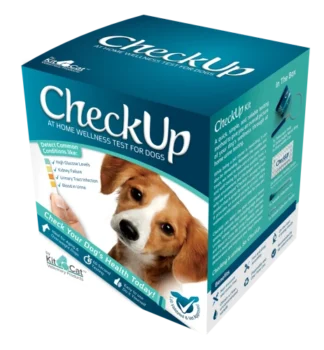As pet owners, we all want to ensure the health and happiness of our furry companions. However, it can be confusing to know what steps to take and when. For American Wirehairs, regular check-ups with a trusted veterinarian are crucial. These check-ups not only address potential health issues but can also prevent them from occurring in the first place. In this article, we will explore the benefits of taking your American Wirehair to regular vet check-ups, what to expect during these appointments, how often to schedule them, and how to choose the right veterinarian for your furry friend.
The Importance of Regular Vet Check-Ups

Having a cat is a delightful experience, but it also comes with the responsibility of keeping them healthy and happy. Regular Vet Check-Ups are just as important as providing your American Wirehair with a balanced diet and a comfortable living environment. Some pet owners may find it difficult and unnecessary to take their cats to the vet unless they are unwell. However, regular vet check-ups are crucial for the overall wellbeing of your furry friend, and in some instances, they can be life-saving. In the following sections, we will discuss the various benefits of taking your American Wirehair to the vet for regular check-ups, what to expect during these visits, how often your cat should go to the vet, and how to choose the right vet for your American Wirehair. If you are looking for more information on how to care for your American Wirehair, consider checking out our guides on preventing hairballs, dental care, ear infections, allergy management, GI problems, and healthy weight.
Preventive Care
Preventive care is an essential component of keeping your American Wirehair healthy. This type of care allows your veterinarian to take proactive measures to prevent certain health issues from occurring. Below is a table to illustrate some of the preventive measures that your veterinarian may recommend during a check-up:
| Preventive Care Measure | Description |
|---|---|
| Vaccinations | Regular vaccinations protect against common illnesses and diseases, reducing the likelihood of infections. |
| Dental Care | Oral health is critical to your American Wirehair’s overall health. Regular dental cleanings and check-ups can prevent tooth and gum problems. |
| Parasite Prevention | Regular use of flea, tick, and heartworm prevention medications will keep your American Wirehair free from parasites that can cause serious problems. |
| Diet and Nutrition | Good nutrition is the foundation of your cat’s health. Your vet can help you ensure your American Wirehair is eating a balanced diet and is receiving necessary nutrients. |
| Exercise and Mental Stimulation | Exercise and mental stimulation are essential for keeping your American Wirehair in good physical and mental health. Your vet can provide tips on how to keep your cat active and healthy. |
| Early Disease Screening | Early detection is key in treating many health issues. Regular check-ups and screenings can identify potential health problems before they become serious. |
Preventive care is crucial to keeping your American Wirehair healthy and happy. By collaborating with your veterinarian and following their recommendations, you can help ensure your cat lives a long and healthy life.
Early Detection of Health Issues
During a routine vet check-up, American Wirehair owners can benefit greatly from the early detection of health issues in their cat. The earlier a health issue is detected, the higher the chances are for successful treatment. A thorough physical examination, blood work, and urine analysis can provide important insights into the overall health of your cat. Here are some health issues that can be detected early during a vet check-up:
- Cancer: Cancer can often be cured if caught early. During the physical examination, the vet will check for lumps and bumps that could indicate the presence of tumors.
- Heart Disease: Annual check-ups can help detect early symptoms of heart disease, such as an irregular heartbeat or heart murmur.
- Diabetes: Blood tests can help detect abnormalities in blood sugar levels, which could indicate diabetes. Early detection of diabetes can help prevent serious complications.
- Kidney disease: Blood and urine tests can detect early signs of kidney disease before symptoms become apparent. This is especially important for older cats, who are more prone to kidney issues.
- Dental issues: During a vet check-up, the vet will examine your cat’s teeth and gums to check for signs of dental issues. Catching dental issues early can help prevent more serious dental problems down the road.
Early detection of health issues is one of the most important benefits of regular vet check-ups for American Wirehairs. It can help ensure the long-term health and wellbeing of your feline friend and give you peace of mind knowing that they are in good hands.
Updates on Vaccinations and Medications
During a regular check-up, your American Wirehair’s veterinarian will provide updates on necessary vaccinations and medications. Vaccinations are important as they protect your cat from a range of infectious diseases. For instance, a core vaccination for cats includes feline viral rhinotracheitis, calicivirus, and panleukopenia. Your vet may also recommend additional vaccines based on your cat’s lifestyle and potential exposure to specific diseases.
Medications may also need to be updated during a check-up. For example, if your American Wirehair has been diagnosed with a chronic health condition such as allergies or thyroid disease, they may require ongoing medication to manage their symptoms. Your vet can also prescribe preventative medication to protect your cat against parasites, such as fleas and ticks.
It’s important to follow your vet’s recommendations for both vaccinations and medications to ensure your American Wirehair stays healthy and protected. Additionally, your vet may provide tips on how to correctly administer medication to your cat, such as which food to mix it with or how to properly apply a topical treatment.
Here is a table summarizing common vaccines and medications recommended for American Wirehairs:
| Vaccines | Medications |
|---|---|
| Feline viral rhinotracheitis | Antihistamines for allergies |
| Calicivirus | Thyroid medication for hypothyroidism |
| Panleukopenia | Flea and tick preventive medication |
| Rabies | Heartworm preventive medication |
| Feline leukemia | Medication for urinary tract infections |
Note that this table is just a general overview and your cat’s specific needs may vary. Always consult with your veterinarian to determine which vaccinations and medications are necessary for your American Wirehair’s individual health profile.
Monitoring Health Changes
During a regular vet check-up, American Wirehairs can undergo a physical examination, blood and urine tests, and vaccination updates to ensure their overall health. However, one of the crucial benefits of such examinations is the ability to monitor any health changes in your furry friend.
Here are some of the changes that a vet can monitor during check-ups:
- Weight Fluctuations: Regular vet check-ups can help in monitoring weight changes in your American Wirehair. If there is a significant drop in weight, it could be indicative of an underlying health issue such as parasites, diabetes, or some other illness.
- Skin and Coat Changes: Changes in the appearance or texture of your cat’s coat or skin can be signs of allergies, parasitic infestations, or hormonal imbalances. A veterinarian will examine these changes in detail and suggest treatment accordingly.
- Dental Issues: Oral health is often neglected in pets, but neglecting it can lead to serious health issues down the line. A vet can examine your cat’s mouth, teeth, and gums for signs of periodontal disease and gingivitis, and guide you on proper dental hygiene.
- Behavioral Changes: If your American Wirehair is suddenly displaying strange behaviors, it could be a sign of underlying health issues. Professionals can help identify the root of the problem and guide you on how to manage it.
- Senior wellness exams: As your American Wirehair ages, regular check-ups become even more crucial. Vets can catch early signs of age-related diseases such as arthritis, kidney disease, cancer, and others. Early detection allows for better management of these diseases and can lead to a longer and happier life for your furry friend.
It’s essential to remember that even small changes in a pet’s behavior or appearance can be an indication of an underlying health issue, and it’s always best to get it checked out. Regular check-ups can help detect symptoms early on and lead to quicker and more effective treatment.
What to Expect at a Vet Check-Up

As a pet owner, it is important to take your American Wirehair cat for regular check-ups to ensure their well-being. During a vet check-up, your cat will undergo a series of examinations and tests to check for any underlying health issues. This may leave you wondering what exactly to expect during the appointment. Don’t worry, we’ll walk you through what typically happens during a vet check-up, so you can be prepared and ensure your furry friend receives the best care possible.
Physical Examination
During a physical examination at the vet’s clinic, the veterinarian will assess the overall health of your American Wirehair. This will involve a thorough physical examination of your cat’s body from head to tail. Here is a breakdown of what a physical examination entails:
| Assessment Areas | Description |
|---|---|
| Eyes | The vet will examine your cat’s eyes for any signs of cloudiness, redness, inflammation, or discharge. These may be early signs of eye infections, cataracts, or glaucoma. |
| Ears | The vet will check your cat’s ears for any signs of redness, inflammation, or debris. Ear mites and infections can cause discomfort and hearing loss. |
| Mouth and Teeth | The vet will examine your cat’s mouth and teeth for any signs of dental disease, such as tartar buildup, gingivitis, or broken teeth. Bad breath is also a sign of dental problems. |
| Heart and Lungs | Checking the heart rate, rhythm, and murmurs can detect any signs of heart conditions. The vet will listen to the lungs to check for any abnormal breathing sounds or coughing that could indicate respiratory issues. |
| Abdomen | The vet will feel the abdomen for any bloating, pain, or masses that could indicate digestive issues, tumors, or organ problems, such as liver or kidney disease. |
| Skin and Coat | The vet will examine the skin and coat for any signs of parasites, such as fleas or ticks, or any infections, rashes, or wounds that could cause discomfort and pain to your American Wirehair. |
Remember that taking your American Wirehair to the vet for regular check-ups helps ensure their overall health and well-being. Being proactive by taking early preventive measures can help detect any signs of underlying health issues, which can mean the difference between a healthy and happy cat or one that needs expensive medical care.
Blood and Urine Tests
During a routine vet check-up for an American Wirehair, blood and urine tests are often conducted to assess the overall health of the cat. These tests can help identify any underlying health issues that may not be visible through a physical examination alone.
Blood tests are used to evaluate the function of important organs, such as the liver and kidneys, and to check for any abnormalities in blood cell counts. The blood sample is usually obtained through a quick and painless procedure that involves inserting a needle into a vein in the cat’s arm or leg.
Urine tests can help detect signs of kidney disease or urinary tract infections. The vet may request a sample of urine, which can be collected at home or obtained at the clinic through a procedure known as cystocentesis. Cystocentesis involves the insertion of a needle into the bladder to collect a sterile urine sample.
The results of these tests can provide valuable information about the cat’s health and help detect any potential health issues before they become more serious. It’s essential for the cat owner to follow up with the vet on any abnormal results and to monitor their cat’s health closely.
Here’s a table summarizing the information about blood and urine tests during a vet check-up for an American Wirehair:
| Blood Tests | Urine Tests |
|---|---|
| Evaluate organ function | Detect signs of kidney disease or urinary tract infections |
| Check blood cell counts | Quick and painless procedure |
| Sample obtained through needle in vein | Sample can be collected at home or through cystocentesis |
Vaccinations
Vaccines are important for maintaining your American Wirehair’s overall health. They work by stimulating your cat’s immune system to build up resistance to specific diseases.
| Vaccine | Recommended Schedule | Description |
|---|---|---|
| Feline Distemper (FVRCP) | Starting at 6-8 weeks of age, given every 3-4 weeks until 16 weeks old, then yearly or every 3 years depending on the vaccine. | Protects against feline viral rhinotracheitis, calicivirus, and panleukopenia (also known as feline distemper). |
| Rabies | Starting at 12-16 weeks of age, given yearly or every 3 years depending on the vaccine. | Required by law in many states. Protects against rabies, a fatal disease that can be transmitted to humans. |
| Feline Leukemia | Starting at 8-12 weeks of age, given every 2-4 weeks until 16 weeks old, then yearly or every 3 years depending on the vaccine. | Recommended for outdoor cats or cats that may come into contact with other cats. Protects against feline leukemia, a viral disease that attacks the immune system. |
It’s important to follow the recommended vaccination schedule to ensure your American Wirehair is fully protected. Your vet will determine which vaccines are necessary based on your cat’s lifestyle and potential exposure to diseases.
Parasite Prevention
Parasites are a common issue that affects a lot of pets, including American Wirehairs. It’s important to have regular vet check-ups to prevent any potential parasite infestations. Parasite prevention is crucial for the overall health of your American Wirehair.
There are a variety of parasites that can affect your cat, such as fleas, ticks, ear mites, and intestinal worms. Each parasite has its own set of symptoms, but they can all cause discomfort and illness for your pet. For example, fleas can cause anemia and even transmit diseases, while ticks can transmit dangerous diseases like Lyme disease.
To prevent these parasites, vets will typically recommend regular deworming and the use of parasite preventative medication. This can come in the form of monthly topical treatments or oral medications. These medications can help to prevent fleas, ticks, and other common parasites from taking hold in your pet’s fur and skin.
In addition to medication, vets will also check for any signs of parasitic infections during their physical exam. This can include checking for fleas, ticks, or other parasites on your cat’s skin or in their fur. They may also recommend additional testing, such as a fecal exam to check for intestinal parasites.
To further prevent parasites, it’s important to keep your American Wirehair’s environment clean. This includes regularly cleaning their bedding, vacuuming your home, and keeping your cat’s litter box clean. Additionally, avoid exposing your pet to other animals that may be infested with parasites.
By following your vet’s advice on parasite prevention, you can help keep your American Wirehair healthy and free from the discomfort and danger of parasites.
| Parasite | Symptoms | Prevention Method |
|---|---|---|
| Fleas | Anemia, itching, skin irritation, transmission of diseases | Monthly topical treatments, oral medications, keeping environment clean |
| Ticks | Fever, lethargy, limping, transmission of diseases like Lyme disease | Monthly topical treatments, oral medications, checking for ticks daily, keeping environment clean |
| Ear Mites | Head shaking, scratching ears, ear discharge, odor | Topical ear drops, regular ear cleaning, keeping environment clean |
| Intestinal Worms | Diarrhea, vomiting, weight loss | Regular deworming medication, fecal exams, keeping environment clean |
How Often Should Your American Wirehair See the Vet

As a responsible pet owner, ensuring regular visits to the vet for your American Wirehair should be a top priority. But how often should you take your feline friend to the vet? This is a question that many owners ask themselves, and the answer is not as straightforward as you may think.
Age is a factor: Young kittens and senior cats may require more frequent vet visits than healthy adult cats. Kittens need to receive a series of vaccinations to protect them from diseases, which may require multiple visits to the vet. Senior cats may also require more frequent visits as they are more susceptible to developing health issues.
Health status matters: If your American Wirehair has a pre-existing health condition, your vet may recommend more frequent check-ups. This is to ensure that the condition is being properly managed and to catch any potential flare-ups early.
Vaccination and parasite prevention: The frequency of vet visits may also depend on the vaccination schedule that your cat requires. Rabies, for example, may need to be updated every one to three years, depending on the laws in your state or country. Additionally, routine parasite prevention may require regular vet visits to ensure that your cat is protected from flea, tick, and worm infestations.
General guidelines: As a general rule, healthy adult cats should see the vet for a check-up at least once a year. This is to ensure that any potential health issues are caught early and to update their vaccinations. However, some veterinarians recommend more frequent visits, such as every six months, to monitor your cat’s health more closely.
Ultimately, the frequency of vet visits for your American Wirehair will depend on their age, health status, and vaccination needs. Working with your vet to create a care plan for your feline friend can ensure that they receive adequate preventative care and stay healthy for many years to come.
Choosing the Right Vet for Your American Wirehair
When it comes to choosing the perfect veterinarian for your American Wirehair cat, there are a few things you should keep in mind. One important factor is location. It can be helpful to find a vet that is close to your home, especially in cases of emergency. Please note that sometimes a farther, larger veterinary clinic may be better suited for your American Wirehair’s needs. Consider a clinic that is open 24/7, or at least have emergency hours, in case you need to pay an unexpected visit.
Another important factor to consider is experience. You’ll want to find a vet with a good amount of experience working with cats, and preferably with experience working with American Wirehairs. Experienced veterinarians will be able to quickly diagnose and treat any health issues your cat may have and may also have knowledge of breed-specific health concerns.
You may want to also consider recommendations from friends, family members, or other pet owners in your community. They may be able to recommend a veterinarian that has provided excellent care for their pets.
It’s also important to consider the clinic’s facilities and services. Look for a clean and well-maintained clinic with up-to-date equipment and technology. It’s also important to inquire about the types of services offered, such as surgery, dental care, and emergency care, to ensure that the clinic can provide all of the services your American Wirehair may need.
Finally, it’s important to schedule a consultation with the veterinarian and clinic staff to get a feel for the clinic’s atmosphere and level of care. During this consultation, you can ask any questions you may have about the clinic’s services and policies, and also observe how the staff interacts with animals and their owners.
By considering all of these factors, you can find a veterinarian and clinic that will provide your American Wirehair with the best possible care.
Conclusion
In conclusion, regular check-ups with a trusted veterinarian play a vital role in maintaining the health and well-being of American Wirehairs. These appointments offer a range of benefits, including preventive care, early detection of health issues, updates on vaccinations and medications, and monitoring health changes. By being proactive and addressing potential health concerns early, pet owners can help ensure their loyal companions lead healthy and happy lives.
It is important for pet owners to understand what to expect during a veterinary visit, including a physical examination, blood and urine tests, vaccinations, and parasite prevention. With proper care and attention, veterinarians can identify potential issues and develop a treatment plan to address them.
As for how often your American Wirehair should see the vet, it’s recommended that they receive an annual check-up, at the very least. However, some pets may require more frequent visits depending on their individual health needs.
Choosing the right vet for your American Wirehair is also crucial. Pet owners should look for a trusted and experienced veterinarian who is knowledgeable about the specific health needs of American Wirehairs. By doing so, pet owners can rest assured that their loyal companions are in the best hands possible.
In conclusion, regular check-ups with a trusted veterinarian are essential for the health and well-being of American Wirehairs. By being proactive and addressing potential health concerns early, pet owners can help ensure their loyal companions live long and healthy lives.
Frequently Asked Questions
1. How often should an American Wirehair have a vet check-up?
The American Wirehair should have a regular vet check-up at least once a year, but more often if they are older or have health issues.
2. Are vet check-ups expensive?
The cost of a vet check-up can vary depending on the location, services provided, and condition of your American Wirehair. However, it is a worthwhile investment in their health.
3. Can regular vet check-ups prevent serious health problems?
Regular vet check-ups can help detect and prevent serious health problems before they become too advanced. Prevention is always better than a cure!
4. What should I bring with me to my American Wirehair’s vet check-up?
Bring your American Wirehair’s medical history, vaccination records, and a list of any symptoms or changes in behavior you have noticed. You may also want to bring a fresh stool sample for testing.
5. How can I prepare my American Wirehair for a vet check-up?
Practice handling and touching your American Wirehair’s ears, mouth, and paws at home so they are used to it. Also, bring some of their favorite treats or toys to help keep them calm during the check-up.
6. What if I can’t afford vet check-ups for my American Wirehair?
There are many resources available for pet owners who cannot afford vet check-ups, such as low-cost clinics and charitable organizations. Do some research and ask your vet for recommendations.
7. Can vet check-ups help with my American Wirehair’s behavior problems?
Vet check-ups can rule out any underlying health issues that may be causing behavior problems. Your vet can also provide advice and resources for addressing behavior problems.
8. What should I do if my American Wirehair gets nervous at the vet?
Speak calmly and reassure your American Wirehair during the check-up. You can also try using treats or toys to distract them. If necessary, ask your vet about anti-anxiety medication
9. Can vaccinations be dangerous for my American Wirehair?
Although possible, adverse reactions to vaccinations are rare. Your vet can discuss any possible risks and benefits with you before administering any vaccinations
10. Can I skip a vet check-up if my American Wirehair seems healthy?
No, even if your American Wirehair seems healthy, regular vet check-ups are important to maintain their overall health and wellness. Plus, some health issues can be present without any visible symptoms.







